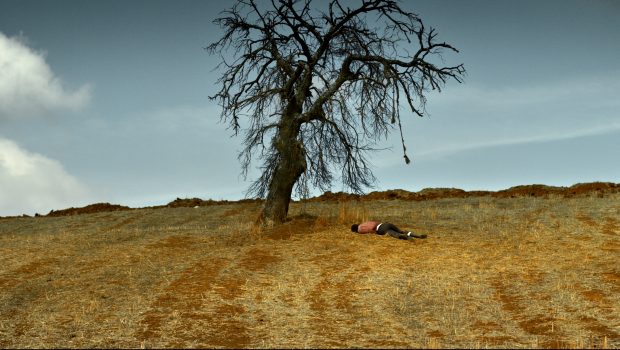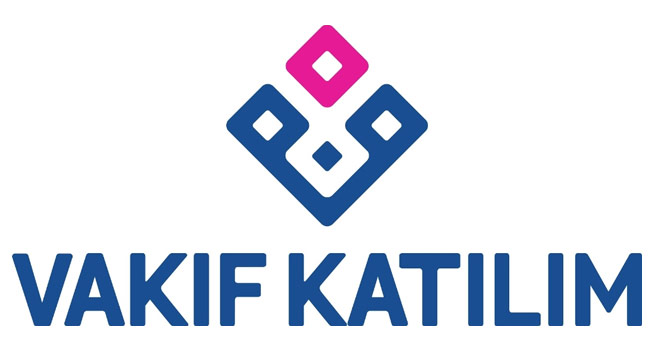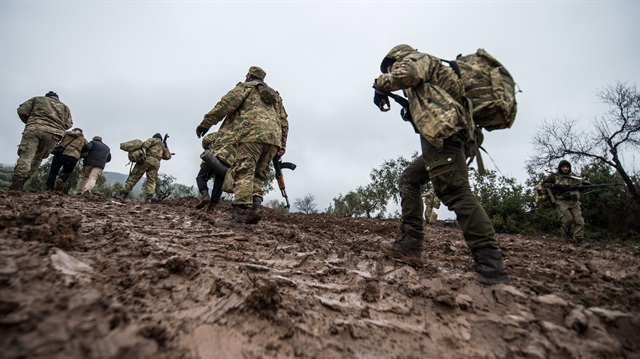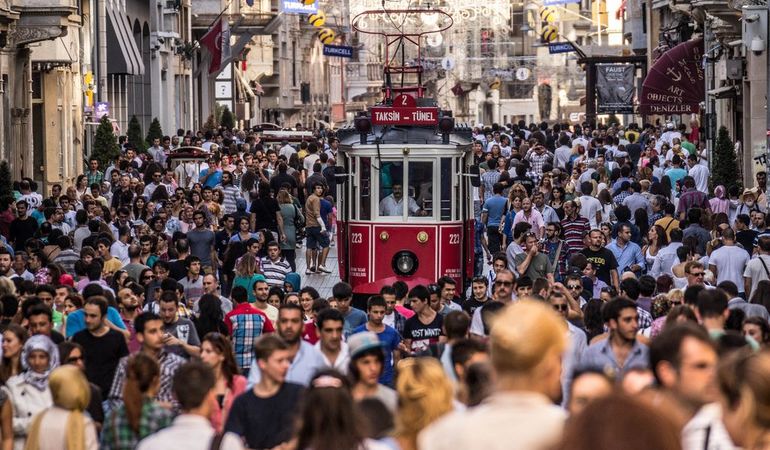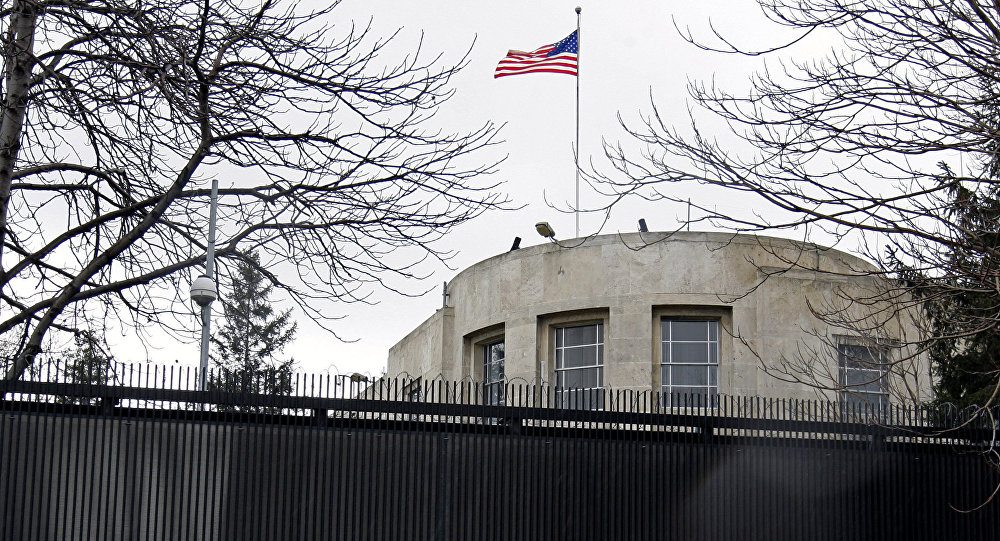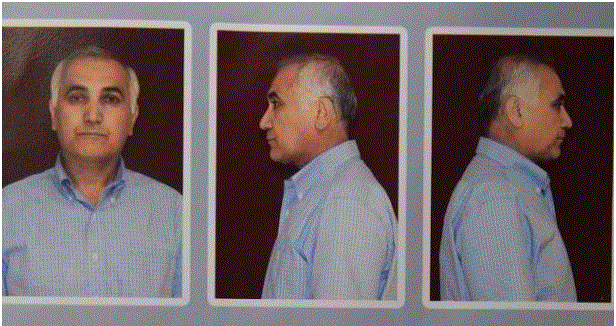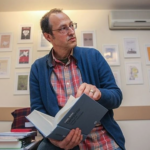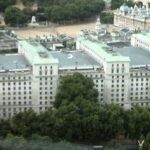In the previous installment, I described the general tone that the NYT’s writers had taken towards the AKP and Tayyip Erdoğan over the past twelve years, and then I took in hand the editorial that the NYT’s editorial staff published in the wake of Turkey’s 30 March 2014 local elections.On 2 May 2014, the NYT editorial staff, apparently spurred by PM Erdoğan’s appearance on Charlie Rose, decided after only two weeks that it was once again time to comment. (1) Most likely it was also an attempt to fill in some of the information gaps in their previous editorial. But at the same time, they cracked the door on Turkish political culture’s Anxiety Closet. (2) Many and varied ghouls inhabit that primordial source of trepidation: Greeks (both Byzantine and modern), imperialists, communists, the Russians, Israel, violent religious fanatics (whether Christian Crusaders or Muslim militants), Armenians, Kurds, Christian missionaries, and the Deep State are some of the more prominent denizens.Fethullah Gülen had been one of the Kemalist elite’s (3) favorite anxieties since the 1990s, even though Gülen has, since late in that decade, been living in Pennsylvania. Gülen and his organization were accused of a slow-paced, devious plot to take over Turkish state institutions, and since 2002 Gülen was seen as allied with the AKP in that goal. The same people voicing these claims assumed that Gülen and the AKP had similar interests and ultimate aims. Consequently, the AKP-Gülen relationship was seen by the Kemalist elite as a sort of domestic Axis of Evil, and the investigations into the Turkish Armed Forces under the Ergenekon and Balyoz cases was understood as a concrete manifestation of the Gülen-AKP alliance’s nefarious intentions. This remained the case for the entire period between 2002-2012 even though, by 2010 at the latest, dissonance between Gülen’s organization and the AKP was becoming increasingly obvious.At the beginning of 2012, discord between Gülen and the AKP was thrust into the public’s awareness through the controversy surrounding Hakan Fidan and the Turkish intelligence service’s attempts to initiate peace negotiations with the PKK. The final break, however, occurred in November 2013 over the Turkish dersane (“cram school”) sector, which then-PM Erdoğan announced would be shuttered in 2015. This was a strike at the financial heart of Gülen’s international educational system. Gülen’s retaliation came from his allies or minions in the Turkish judiciary and police, who activated previously completed corruption investigations into a number of AKP politicians and business figures close to the party. This is the conflict that has been playing out for the past year.Here, I should mention that the extent to which Gülen’s people gained positions of power in the judiciary and police is unknown. As mentioned, the Kemalist elite had long expressed fears about Gülen’s organization taking over the Turkish state. But it was also always clear to everyone that Gülen’s people had in fact gained and were continuing to gain some positions in the judiciary and the police; the only difference was whether one saw this as a threat or not. After the corruption investigations were announced, the AKP government responded by quickly shuffling large numbers of police officers, police commissioners, and state prosecutors to different positions and even different cities. In actuality few people lost their jobs, so this was not a purge, but rather a stop-gap technique to regain mastery over the immediate situation while longer-term solutions could be devised. However, if Gülen’s organization had had a very comprehensive level of control over the Turkish state machine, the AKP’s move would not have been possible. Consequently it seems that, even though the threat posed by Gülen’s organization was larger than most people had supposed, it was clearly not as great as the more extreme amongst the Kemalist elites had asserted. If Gülen had that sort of deep influence in and over Turkish state institutions, then the AKP would not still be in power today.Further confusing the situation is that, after the November-December 2013 political earthquakes in Turkey — when these corruption allegations suddenly surfaced in orchestrated fashion but the AKP government managed to survive the ensuing storm — a massive and sudden shift in political allegiances and rhetoric took place. On the one hand, Kemalist elites who had for years been pronouncing the imminent doom of the Turkish state at the hands of Gülen and Erdoğan, suddenly perceived that Gülen was “not so bad after all,” and that Gülen’s organization was “actually doing good things” and “spreading Turkish language and culture” to other countries. On the other hand, non-Gülenists in the AKP and the pro-AKP press suddenly found a new bogeyman who was in charge of a “parallel state” trying to exert control over Turkish state institutions. The shift in Turkey’s political rhetoric was enough to cause vertigo.The important fact behind this rhetoric is that it is all political. In other words, the fervent polemics going on in Turkish political space concern the political conjuncture, the urgent need to sway Turkish voters, and not much more. Turkey has actually been in the midst of a long, fraught, and important election cycle since the Gezi Park protests/riots/commune of June 2013. After a triple sequence of the local elections of March 2014, the Presidential election in August (i.e. five months ago), and now the upcoming parliamentary elections of June 2015, Turkey will not see another election until 2019, which means an unusually long period in which state or local officials will not be put to any electoral test. Hence the AKP sees the next five years as a period in which fundamental reforms can be carried out in state institutions to improve transparency and strengthen governance and efficiency. (4) That poses a serious threat to various groups benefiting from Turkish institutional corruption for the past decades, one of which seems to be Gülen’s organization. The the harshness of the resulting political altercation needs to be understood in that context. Today, the anti-AKP crowd still embrace the December 2013 corruption investigations as hard evidence of AKP perfidy. Also today, AKP supporters identify the same investigations as Gülen’s attempt at destabilizing the AKP government and possibly causing it to be overthrown (this is what is meant by all the talk of a coup d’état) with the ultimate aim of forming a coalition with the Kemalist ancien régime. Yesterday it was different, and tomorrow may bring fresh surprises, but we need to recognize the fundamentally conjunctural nature of the narratives devised by the various actors on the Turkish political scene.It is in that connection that I want to draw attention to two aspects of the NYT’s 2 May 2014 editorial. The less important is the terminology that the NYT editors use to label then PM-Erdoğan. Once more their attituıde extremely provocative and consists of several ad hominem attacks. Erdoğan is described as “crass” and “cynical”; he has “cronies”; he is “increasingly authoritarian.” While it is true that someone like Egemen Bağış has a personal style that many people find grating, using the term “crony” is inappropriate, and suggests that the NYT editors have misjudged the current situation in Turkish politics. Furthermore, it implies that the other AKP ministers should be similarly labeled — including figures like Ali Babacan and Mehmet Şimşek, who have won international acclaim for how well they are performing their jobs. For example, now that Turkey has assumed G20 leadership for 2015, it means that one of Tayyip Erdoğan’s “cronies,” Ali Babacan, will be leading the organization for the next twelve months and chairing the annual meeting in 2015.The more important of the two issues is the essential verdict on Turkish politics stated not-so-covertly by the editors. The NYT editors have decided that it is “unlikely” that Gülen and his organization engaged in illegal wiretapping activities. That also means a “not guilty” opinion on the count of trying to bring down the AKP government through the corruption investigations that became public in December 2013. In reality, even before the 31 March local elections, the nature of the wiretap recordings had made it clear that Gülen’s organization was very likely the source, and the aim of the December 2013 corruption investigations could not have been more explicit; nevertheless, all this is ignored or sidestepped by the NYT editors.But more to the point, what makes Fethullah Gülen so much more appealing to the NYT than Erdoğan? After all, President Erdoğan is an elected politician (victorious in three successive elections, not counting local elections, at the time the editorial was published). He was so when the editorial was published, and he continues answerable to the Turkish electorate and public opinion for whatever he does. Meanwhile, Fethullah Gülen is the leader of a non-transparent religious organization that has branches in dozens of countries around the world (including the U.S.), is not the leader of a political party, and is not accountable to the Turkish electorate.The NYT editorial notes that Gülen does not have any legal cases against him in Turkey that might be the basis for an extradition request — but that did change on 19 December 2014. Additionally, several of Gülen’s schools in the U.S. have recently been subjected to police investigations, and U.S. consulates in Turkey have for many years been noting which Turkish visa applicants were probably adherents of Gülen’s organization. The U.S. government obviously does not see Gülen as a “threat,” but neither have they been ignoring him or his organization. More than seven months after the NYT’s 2 May editorial, on 14 December 2014 the Turkish police launched investigations into several organizations linked to Gülen, and two of them, Zaman and Samanyolu, are media companies; the charges center on fabricating evidence, incitement, and membership in an “armed” organization — all in relation to a criminal case from 2009. This has to do with another Islamic group, known as the Tahşiyeciler and hostile to the Gülenists, whom the Gülen network is now being accused of having falsely smeared and framed in order to get them arrested and put behind bars as an Al Qaeda extension in Turkey. Meanwhile the editorial staff of the daily Zaman are being accused of having collaborated with this operation through their deliberately slanted coverage, and the directors of the Samanyolu television station are being accused of having simultaneously launched a supposedly fictional tv series which however parallels and echoes the fabricated charges against the Tahşiyeciler group all too closely. The underlying idea is that this was a concentrated effort by the Gülenists which somehow entailed very close collaboration between their elements inside the police and the judiciary as well as their media forces. It is not an accusation that can be dismissed offhand.AKP politicians have insinuated that more investigations are in the pipeline, so the situation remains fluid. Under all circumstances it is disconcerting to see journalists arrested (or taken into custody), and even prominent AKP politicians have been critical of the manner in which police have handled some investigations in the past several years, including this one. Charges of “armed” conspiracy seem extravagant, and are likely to be caused by problems of coverage in various Turkish Penal Code articles. Last but not least, just like the corruption investigations launched last December (which the NYT appears to have taken at face value), these investigations, too, have a clearly political aspect, and Turkish citizens understand them as such; the result is that citizens’ opinions of the investigations are largely determined by their political feelings. Having said all that, it remains the case that the Gülen network is probably far from being as innocent, virtuous or above ground as the NYT has concluded.The Turkish police, also undergoing a long process of institutional reform and professionalization, must keep improving the manner in which they conduct investigations. But these are reforms that will continue in the coming years. Why do I feel confident of that? Simply, the AKP wants to turn Turkey into a regional power in economic, financial, transportation, and political terms. Over the past ten years, prominent AKP figures have stated this innumerable times. In order to accomplish these goals, Turkish institutions must develop and/or gain the operating procedures, transparency, professionalization, regulation, and efficiency that institutions in other industrialized democracies feature. The AKP has put forth these characteristics as goals for Turkish institutions and is working, against severe resistance from various state and non-state actors, to create these features. (5) It is not a vision to be dismissed in any fixed anti-AKP way; in fact it is the very embodiment of the efficient state-building and good governance that the West, the UN, and all international aid institutions have been looking for (but failing to develop) in Afghanistan, Pakistan, Syria or Iraq – that is to say, all the various devastated targets of recent Western interventionism.There have been many bumps on this road to modern Turkish state institutions in the past two hundred years, and there will likely be more in the future. But there is a very good case for allowing Turkey to do it on her own, in her own way, and without any overtones whatsoever of Western interventionism, real or intended or just imagined. As I stated in my previous essay, the NYT editors have apparently chosen to overlook the context for current Turkish political events. On the other hand, they may also be falling victim to their own Anxiety Closet. As everyone is well aware, the Islamic Threat is high on the list of anxieties for most Europeans and North Americans. However, they should not forget that the AKP are conservative politicians in an industrializing Muslim democracy. Hence the AKP may not look or act exactly like what those Europeans or Americans wish to see. All the more reason to accept its authenticity, to accommodate it, to reach a series of dynamic mutual understandings with it, and above all not to try to isolate or exclude or undermine or subvert it – as the West has repeatedly done in the past with its “undesirables” in the Rest of the World. NOTES/FAQ/ERRATA NOTES(1) A good friend of mine suggested that since the difference between the two editorials is so stark, I should simply ask the NYT Editorial Staff directly how that editorial came about. So I did. Here’s the text of the letter I sent two weeks ago: “editorial@nytimes.com.To whom it may concern,I am writing to inquire about the series of editorials that the New York Times published in previous months concerning the Turkish government. I am an academic employed at Sabancı University in Istanbul. I have already written an analysis of the New York Times editorial that was published on 17 April 2014. That essay can be accessed at serbestiyet.com under my name. However, it has been pointed out to me that this previous essay lacks the New York Times’s viewpoint, and I would also like to include the New York Times’s standpoint in order to provide a more balanced and comprehensive discussion. So, before writing a discussion of the New York Times staff editorial published on 2 May 2014, I wanted to ask the Times’s editorial staff for comment on the specific aspect that I wondered about. That issue is why the New York Times’s editorial staff chose to publish a comment on that particular subject (the relationship/feud between Fethullah Gülen and R. Tayyip Erdoğan, and the possibility that the Turkish government would ask the U.S. government to extradite Gülen) and so soon after publishing the previous editorial. I also wondered how the content for the editorial was composed because the content’s quality and depth is quite different from that of the 17 April 2014 editorial.I greatly appreciate any information that you can provide to me, and I am certainly open to further information about the other editorials that the New York Times has published concerning Turkey this year. I thank you for your time and attention.Sincerely, etc.” I still haven’t received a reply, but if I do I’ll include it in the upcoming essays.(2) For those who don’t know the reference, the Anxiety Closet was a regular feature of Berkeley Breathed’s Bloom County, a daily cartoon strip that became an essential part of 1980s U.S. culture.(3) Some among Turkish pundits have been using the term endişeli modernler (“anxious moderns”) to refer to the old elite’s overwrought emotional state, now very humorously characterized by Cengiz Alğan in an article titled “Teacher, Turkey is pulling my hair” (Örtmenim, Türkiye saçımı çekiyo!) at serbestiyet.com.(4) The effort to centralize the Ottoman and then the Turkish state against the various centrifugal forces working to erode the Turkish state’s ability to oversee Turkish society has been proceeding, fitfully, since 1789 and the reign of Selim III. The Ottomans started this effort about a century after the Great Powers (like Britain or France) had largely succeeded in establishing their basic modern state institutions. Only now does it seem that Turkey is on the verge of establishing state institutional standards similar to those that exist in the industrialized mass democracies.(5) At this point I want to reiterate something that I mentioned in my two previous essays. The primary problem in current Turkish politics is not the AKP; rather, it is the lack of an organized, competent, liberal-democratic Turkish opposition party that is the far more pressing issue. This is so blatant that even AKP politicians, including Tayyip Erdoğan, have complained about the lack of an opposition that could provide realistic alternative approaches to the problems currently facing the country. This is also a main reason why Turkish voters continue to vote for the AKP. Unless and until such an opposition party emerges, the AKP will continue to dominate the Turkish political landscape. The BDP-HDP, over the past two years since the Kurdish peace process was initiated, did begin to inspire hope as one such alternative. Unfortunately, their policy decisions since October 2014 have cast serious doubt on whether they will be able to take the steps necessary to appeal to the wider Turkish voting public beyond their ethnic Kurdish base. FAQ( 1) Biyografik bilgilerimi Türkçe olarak yazmak istedim. Ben ABD’liyim. 1971’de Idaho eyaletinde doğdum. 1999’den beri İstanbul’da oturuyorum, Sabancı Üniversitesi’nden hem Tarih Yüksek Lisansım, hem Tarih Doktoram var. Benim uzmanlık alanım 20. yüzyıl Türkiye Tarihi ve Türk-Amerikan İlişkileri. Özellikle II. Dünya Savaş’indan sonraki dönemle ilgileniyorum. ,(2) It came to my attention that my writing style appears combative to some people. Compared with most other writing styles in the Turkish press, this is rather amazing. Mine would probably rank as among the least combative. In any case, I would like to stress that I intend only to calmly discuss and criticize the coverage of Turkey in the international press, and to point out errors of fact when necessary. I would also like to add an element of entertainment to the essays if possible, which may mean a good turn of phrase now and again.
Yazıyı beğendiysen, patronumuz olur musun?
Evet, çok ciddi bir teklif bu. Patronumuz yok. Sahibimiz kar amacı gütmeyen bir dernek. Bizi okuyorsan, memnunsan ve devam etmesini istiyorsan, artık boş olan patron koltuğuna geçmen lazım.
Serbestiyet; Türkiye'nin gri alanı. Siyah ve beyazlar içinde bu gri alanı korumalıyız. Herkese bir gün gri alanlar lazım olur.





